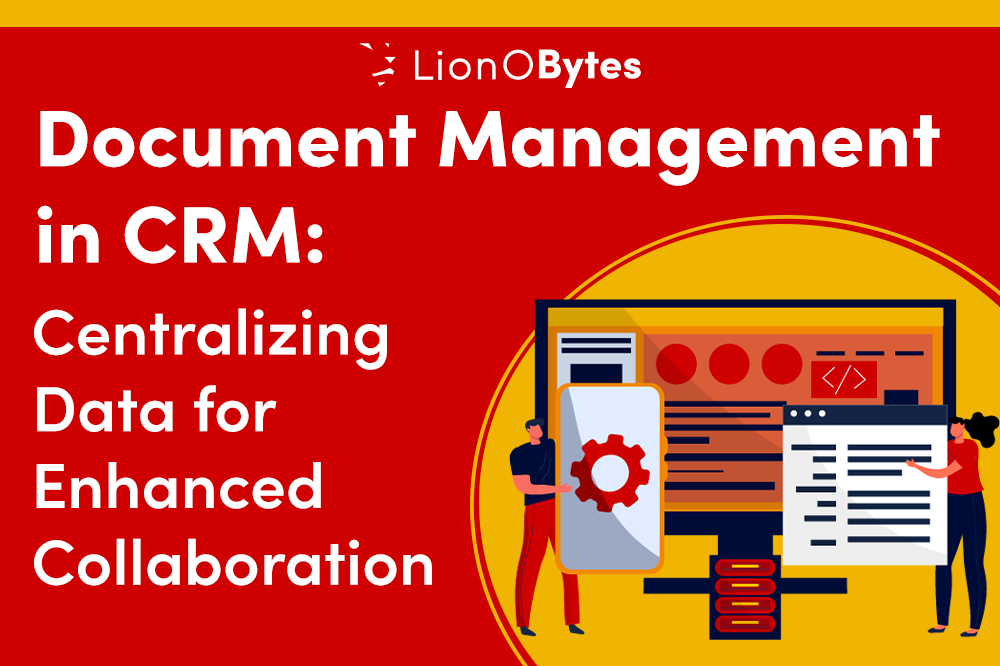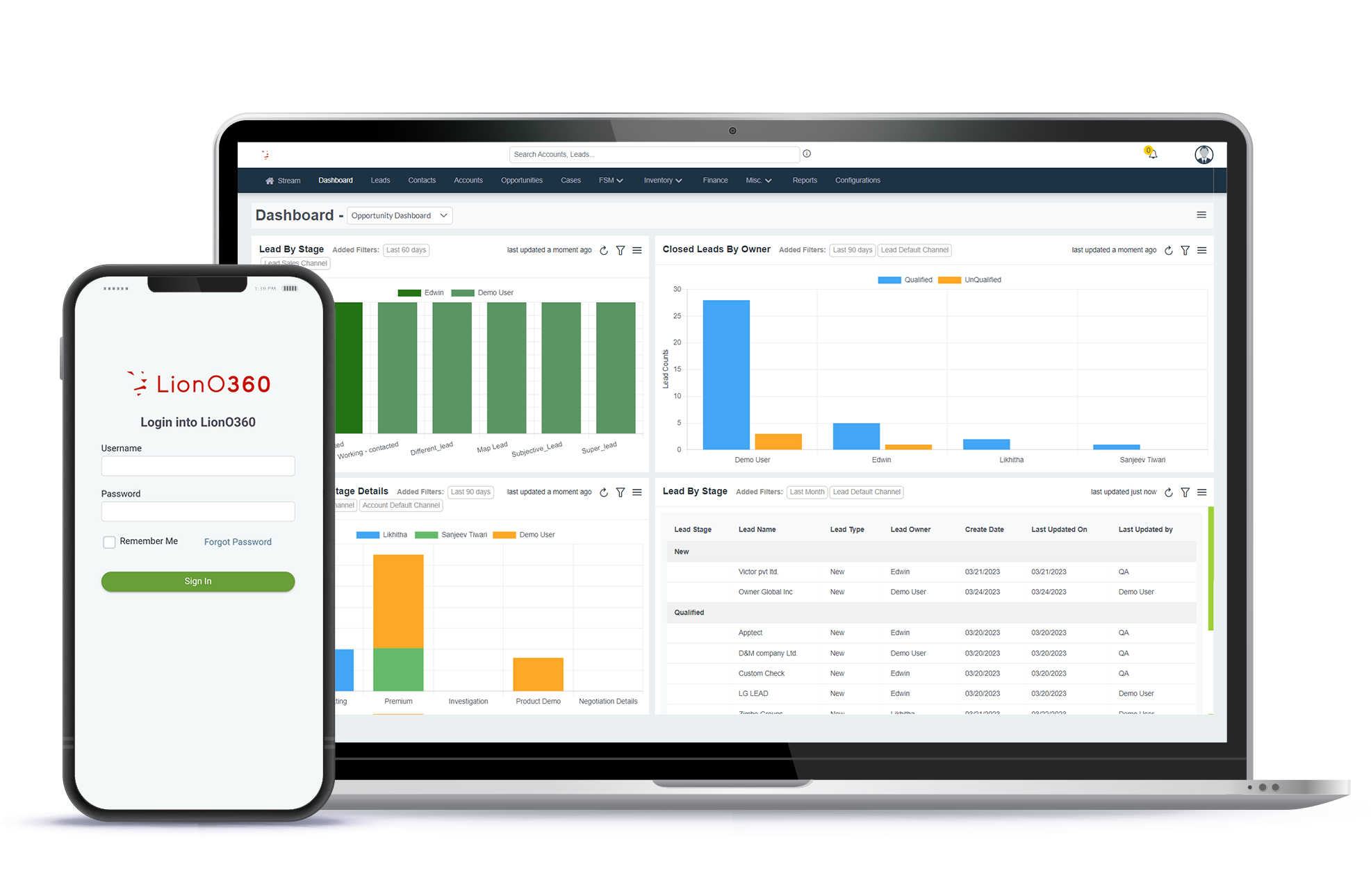
Most businesses in this competitive edge work with multiple sectors. It can be human resources, digital marketing, or more. Sales, marketing, customer service, and operations teams need to stay aligned, updated, and informed to deliver exceptional customer experiences. But with scattered documents, multiple file versions, and endless email threads, collaboration often becomes chaotic.
That’s where document management within CRM systems steps in. In this blog, explore how integrating document management into your CRM centralizes data, simplifies workflows, and enhances collaboration across your organization.
What is a CRM Document Management System?
Traditionally, document management systems were standalone tools used to store, organize, and manage files. But when document management is embedded within your CRM, it acts as a central hub for all customer-related documents.
For example:
- Sales proposals attached to specific opportunities.
- Contracts linked to customer profiles.
- Product brochures stored under marketing campaigns.
- Service reports saved within customer support cases.
This integration ensures that teams can easily access the latest documents without switching platforms, improving productivity and customer response time.
Why Do Businesses Need Document Management in CRM?
Here are the common problems businesses face without centralized document management:
Scattered Data Across Platforms
Important documents are saved across local drives, emails, SharePoint, Google Drive, and personal folders, making it difficult to locate the right file at the right time.
Version Control Issues
Multiple versions of the same document create confusion. Teams often waste time verifying if they’re using the updated proposal, contract, or presentation.
Inefficient Collaboration
Without a centralized location, sharing documents requires email attachments or external links, which slows down workflows and increases data security risks.
Poor Customer Experience
When sales reps or support agents struggle to find the correct file quickly, customers perceive the business as disorganized, affecting trust and credibility.
How Does CRM Document Management Enhance Collaboration?
Here’s how integrating document management into your CRM transforms team collaboration:
Centralized Access
All documents are stored within CRM records, accounts, or opportunities. Anyone with the right permissions can access them instantly, reducing search time and confusion.
Improved Version Control
Document management in CRM ensures that only the latest version is accessible while maintaining version histories for compliance and reference.
Streamlined Workflows
Sales teams can attach proposals directly to deals, marketing teams can update brochures for sales to use, and support teams can upload service reports under customer cases – all with one workflow automation.
Better Security and Compliance
CRM document management systems offer role-based access, audit trails, and encryption, ensuring data security and regulatory compliance.
Real-Time Collaboration
Some CRM platforms allow document co-editing, commenting, and approval workflows within the system itself, enhancing cross-team collaboration.
Mobile Access
With cloud CRM solutions, teams can access documents on-the-go, ensuring productivity even when working remotely or in the field.
Key Features of Document Management in CRM
Modern CRM platforms with document management capabilities offer features such as:
Folder Structures and Tags
Organize documents with folders, tags, and metadata for easy retrieval.
Version Control and Audit Trail
Track edits, uploads, and user activity to maintain document integrity and compliance.
Document Linking to CRM Records
Associate documents with specific leads, accounts, opportunities, or cases for contextual access.
Advanced Search
Quickly locate files using keywords, tags, document types, or upload dates in its saved searches feature.
Access Permissions and Security Controls
Define who can view, edit, or delete documents to protect sensitive business information.
Approval Workflows and E-Signature Integration
Streamline contract approvals, proposal signoffs, and onboarding document confirmations within the CRM.
Cloud Storage Integration
Integrate with platforms like Google Drive, OneDrive, or Dropbox to sync files seamlessly.
Mobile Accessibility
Access, share, or upload documents via mobile CRM apps for field or remote teams.
Benefits of Centralizing Document Management in CRM
Here’s how your business benefits when you manage documents within your CRM:
Saves Time and Boosts Productivity
Teams spend less time searching for files and more time engaging customers or closing deals.
Strengthens Collaboration Across Departments
Sales, marketing, legal, finance, and customer service can work together efficiently with access to the same updated documents.
Reduces Operational Costs
Eliminates the need for separate document management systems or paid file-sharing tools.
Enhances Customer Experience
Quick document access means faster responses to customer queries and requirements, improving satisfaction.
Ensures Data Security and Compliance
With access controls and audit trails, businesses meet industry regulations like GDPR, HIPAA, or ISO standards confidently.
Supports Remote and Hybrid Work
Cloud-based CRM document management ensures seamless collaboration for distributed teams.
Future Trends in CRM Document Management
As technology evolves, document management in CRM will see these emerging trends:
- AI-Powered Document Insights AI will analyze document content to suggest next steps, identify contract risks, or auto-tag files for quick searchability.
- Smart Templates and Auto-Fill CRMs will generate sales proposals or contracts using predefined templates auto-filled with customer data, saving time and ensuring accuracy.
- Blockchain for Document Security Blockchain technology will offer tamper-proof verification for critical documents like contracts and certifications.
- Enhanced Collaboration Tools Integrated real-time co-editing, commenting, and approval workflows will become standard for smoother teamwork.
How CRM Document Management Solves Your Biggest Pain Points
Managing documents effectively is no longer an optional task – it’s essential for operational excellence and superior customer experiences. With CRM document management, you centralize your business documents, simplify workflows, and empower teams to collaborate efficiently.
Instead of wasting time searching for files, worrying about outdated versions, or juggling between systems, your teams can now:
- Access the right document instantly
- Share and collaborate seamlessly
- Deliver faster, better, and smarter services to customers
In a world where time is money and customer experience are king, centralizing document management within your CRM might just be the strategic move for your business needs.
Experience Hassle-Free Document Management with LionO360

The Document Management feature by LionOBytes allows businesses to store, organize, and access documents from anywhere safely. Whether it is a customer agreement, an invoice, a proposal, or any internal report, LionO360 keeps all your documents in one centralized place, complete with encrypted cloud storage that provides maximum protection against data loss.
Teams can easily upload, edit, share, and store files in all formats, creating faster collaboration and smoother workflows across departments. Since all your employees have access to the same documents in real-time and will receive an email notification on document sharing, this keeps your workforce aligned and productive while driving faster decision-making and lead conversion. With LionO360 CRM's Document Management feature, your files are easier to manage while being securely stored.
Schedule a free CRM demo today and experience LionO360’s AI-powered CRM analytics to boost your sales accuracy and business growth
Frequently Asked Questions
What is CRM document management?
CRM document management refers to storing, organizing, and managing business documents within a CRM system to streamline workflows and collaboration.
Why is document management important in CRM?
It centralizes customer-related documents, improves access, ensures version control, and enhances team collaboration for better productivity and customer experience.
Which CRM offers the best document management features?
The best CRM for document management offers cloud-based storage, access controls, version tracking, and seamless integration, like LionO360 CRM.
How does a CRM document management system improve data organization?
It organizes documents with folders, tags, and links them to relevant CRM records, ensuring quick retrieval and structured data organization.













